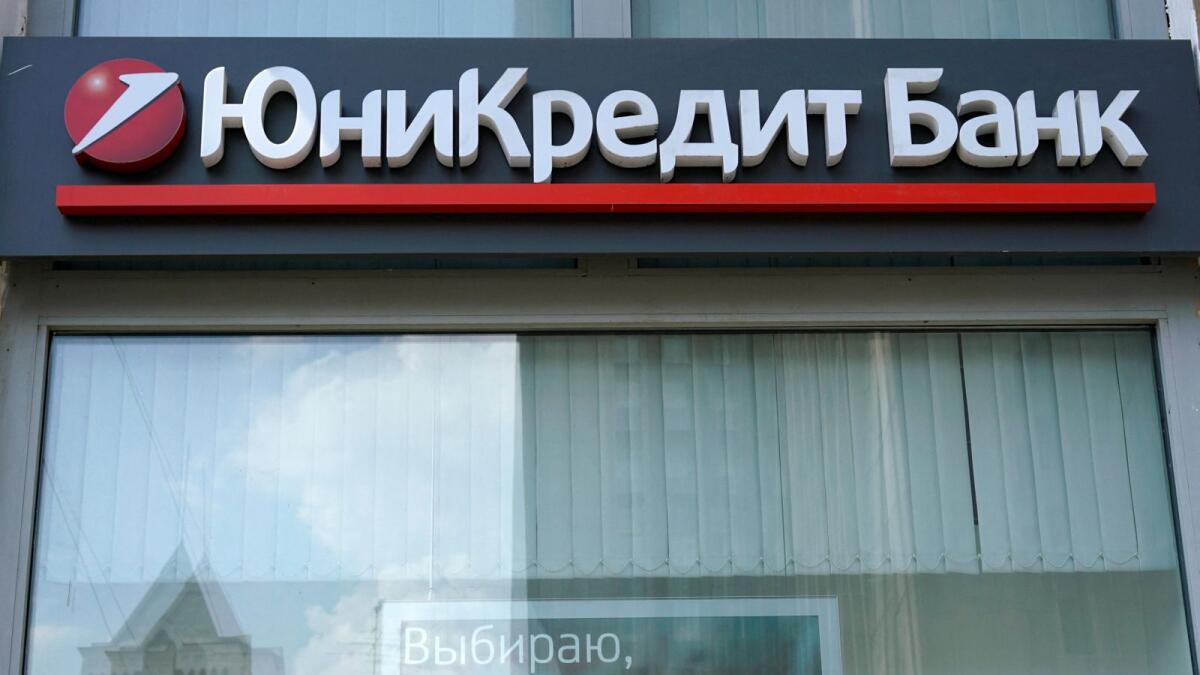UniCredit, an Italian bank, is challenging the European Central Bank’s (ECB) terms to reduce its exposure to Russia by seeking a ruling from the EU’s General Court and requesting a freezing of the request. The bank stated that the regulatory complexities, including Western sanctions against Russia and local laws in Russia, necessitated seeking clarity on the necessary actions. The application for challenging the ECB’s decision may take several months, with UniCredit expressing concerns about potential unintended consequences.
Euro zone banks with ties to Russia have faced increasing pressure from regulators, including the ECB and U.S. authorities, over their involvement in the country, more than two years after Moscow invaded Ukraine. Italy’s Foreign Minister, Antonio Tajani, welcomed UniCredit’s complaint, emphasizing the importance of considering the operating environment of Italian companies in Russia amid EU sanctions. The European Central Bank has urged European lenders to provide a clear roadmap for exiting the Russian market to avoid reputational risks.
UniCredit has made significant progress in reducing its exposure to Russia, aligning with the ECB’s goal of minimizing its presence in the country. However, the bank has raised concerns about the terms set by the ECB for reducing its Russia business, which it believes go beyond the current legal framework. UniCredit’s decision to challenge the ECB’s requirements comes after Bank of Italy Governor Fabio Panetta urged Italian banks to exit the Russian market due to reputational risks.
Despite UniCredit’s legal action, Austria’s Raiffeisen, which also has substantial exposure to Russia, has no plans to challenge the ECB’s request to reduce its Russia-related business. The move by UniCredit to sue the ECB over its efforts to exit Russia has drawn criticism from experts who believe it reflects poorly on the bank’s stance concerning Ukraine’s fight against Russia. The bank has already reduced its Russia exposure significantly, with further reductions planned.
European banks still active in Russia are facing pressure from U.S. authorities, with Treasury Secretary Janet Yellen warning about the risks involved and suggesting the possibility of stronger secondary sanctions on banks aiding Russia’s war effort. Western sanctions and restrictions imposed by Moscow have complicated European banks’ exit efforts, with any exit now requiring approval from President Vladimir Putin and Russia’s central bank. Intesa Sanpaolo, another Italian lender, is yet to finalize its exit from Russia despite securing presidential approval to dispose of its Russian assets last year.
In conclusion, UniCredit’s decision to challenge the ECB’s terms for reducing its exposure to Russia reflects the complexities and challenges faced by European banks with ties to the country. The regulatory environment, Western sanctions, and geopolitical factors have made exiting the Russian market a daunting task for these banks. With pressure mounting from regulators and the need to comply with international sanctions, European banks must navigate a difficult path to minimize their exposure to Russia while ensuring compliance with legal requirements.











